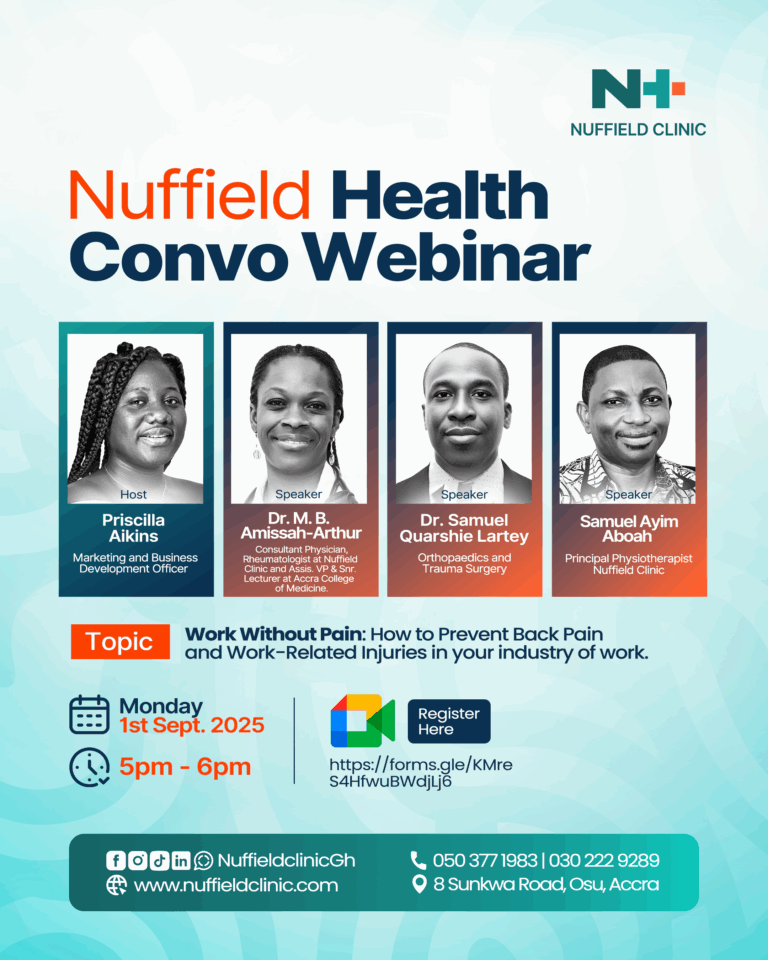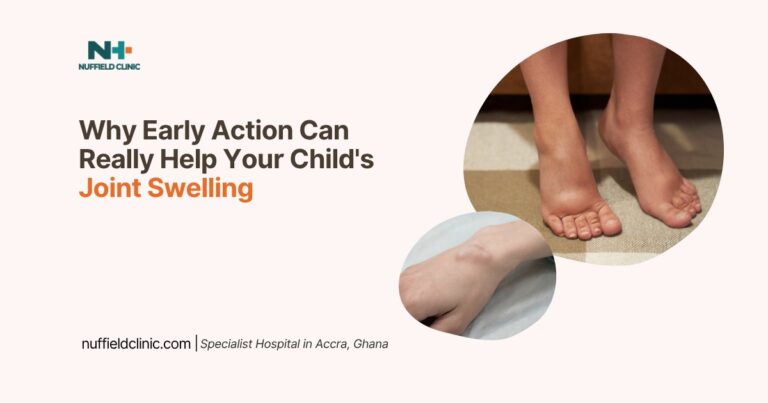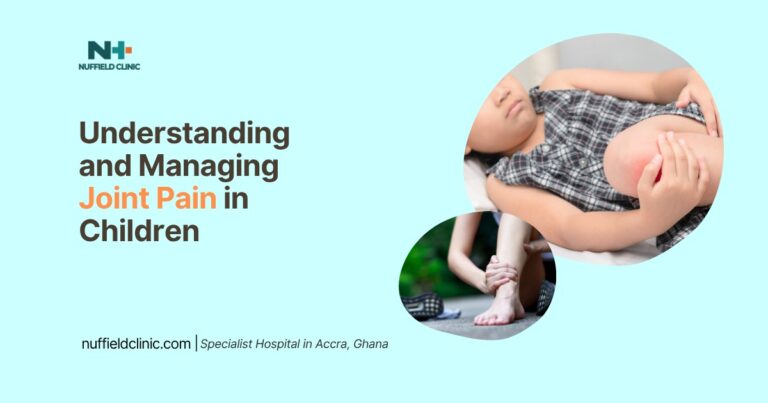
Are you struggling with persistent pain, stiffness, or swelling in your joints or limbs? Do you know how to spot the early signs of a tendon injury and when to seek expert care? I wrote this article with you in mind.
We put together this comprehensive guide for individuals experiencing tendon pain, athletes, and people in physically demanding jobs, explaining the causes, symptoms, and treatment options for tendon injuries.
It empowers readers with essential knowledge to recognize, prevent, and manage tendon issues, while also highlighting the expert care available at Nuffield Clinic in Accra, Ghana, for those in need of specialized treatment.
Understanding and Treating What
Tendon injuries, also known as tendinopathy, are a common problem that can significantly affect mobility and overall quality of life. Tendons are strong, fibrous cords that connect muscles to bones, enabling movement.
Despite their strength, tendons are prone to injury due to overuse, trauma, or age-related degeneration. Understanding the symptoms, causes, and treatment options for tendon injuries is essential for proper care and prevention.
Symptoms of Tendon Injuries
Tendon injuries can present differently depending on the specific tendon affected, but some common symptoms include:
- Pain and Tenderness: Pain is often felt at the site of the injury, especially during movement or when pressure is applied to the tendon.
- Stiffness: People with tendon injuries often experience increased stiffness, particularly in the morning or after periods of inactivity.
- Swelling: The affected area may appear swollen or inflamed.
- Heat and Redness: Inflammation around the tendon can cause warmth and redness in the area.
- Weakness: Loss of strength in the affected area can make it difficult to perform daily tasks.
- Cracking Sensation: Some individuals report hearing or feeling a cracking or popping sensation when moving the injured tendon.
Causes of Tendon Injuries
Tendon injuries can be categorized as acute or chronic, with several potential causes:
- Overuse: Repetitive movements in sports or work-related tasks can lead to chronic conditions like tendinitis. Athletes engaged in repetitive motions, such as runners or tennis players, are particularly susceptible.
- Acute Trauma: Sudden injuries, such as falls or accidents, can cause tendons to partially or completely tear.
- Age-Related Degeneration: As people age, tendons naturally lose elasticity and strength, making them more vulnerable to injury.
- Medical Conditions: Conditions like rheumatoid arthritis, diabetes, or infections can lead to tendon inflammation and weaken the structure of tendons.
- Medications: Certain medications, such as fluoroquinolone antibiotics, have been linked to an increased risk of tendon rupture, particularly in the Achilles tendon.
Types of Tendon Injuries
Several types of tendon injuries exist, each with distinct characteristics:
- Tendonitis (Tendinitis): Inflammation of a tendon, often caused by overuse or repetitive strain.
- Tenosynovitis: Inflammation of the sheath surrounding a tendon, typically affecting the hands or wrists.
- Tendinosis: Degeneration of the tendon’s collagen structure, often a result of chronic overuse without proper recovery.
- Tendon Rupture: A complete or partial tear of the tendon, usually caused by a sudden force or trauma.
Treatment Options for Tendon Injuries
Treatment for tendon injuries aims to relieve pain, reduce inflammation, and promote healing. Available treatment options include:
- Rest: Reducing or avoiding activities that worsen the injury is essential for recovery. A rest period of three to six weeks is typically recommended.
- Physical Therapy: A physical therapist can guide patients through specific exercises to restore strength, flexibility, and range of motion. Eccentric exercises, where muscles lengthen under tension, are particularly beneficial.
- Medications: Non-steroidal anti-inflammatory drugs (NSAIDs) can help manage pain and inflammation.
- Injections: Corticosteroid injections may provide temporary relief from persistent pain and inflammation, although their use should be carefully monitored.
- Surgery: In severe cases where conservative treatments fail, surgery may be required to repair torn tendons or remove damaged tissue.
Prevention Strategies
Prevention is always better than treatment when it comes to tendon injuries. Simple lifestyle adjustments can reduce the risk of injury:
- Warm-Up and Cool Down: Properly warming up before physical activity and cooling down afterwards can reduce the risk of tendon strain.
- Use Proper Technique: Learning the correct techniques for sports or repetitive activities can prevent unnecessary strain on tendons.
- Strengthening Exercises: Regular strength training fortifies muscles and provides better support to tendons, reducing the risk of injury.
- Ergonomic Adjustments: People in repetitive work environments should ensure that their workstations are set up ergonomically to avoid placing undue stress on tendons.
- Gradual Increase in Activity: Gradually increasing the intensity and duration of physical activity can help tendons adapt to new stress levels over time.
Why Choose Nuffield Clinic for Tendon Injury Treatment?
If you’re struggling with a tendon injury, Nuffield Clinic in Accra, Ghana, is here to help. Our team of orthopedic, physiotherapy, and rheumatology specialists provide personalized care to get you back to peak health.
With a focus on evidence-based treatment methods, Nuffield Clinic offers tailored treatment plans for each patient. Whether you need physical therapy, injections, or surgical intervention, our expert team will guide you every step of the way.
Don’t let a tendon injury limit your mobility or quality of life. Contact Nuffield Clinic today for a consultation and take the first step toward recovery.








